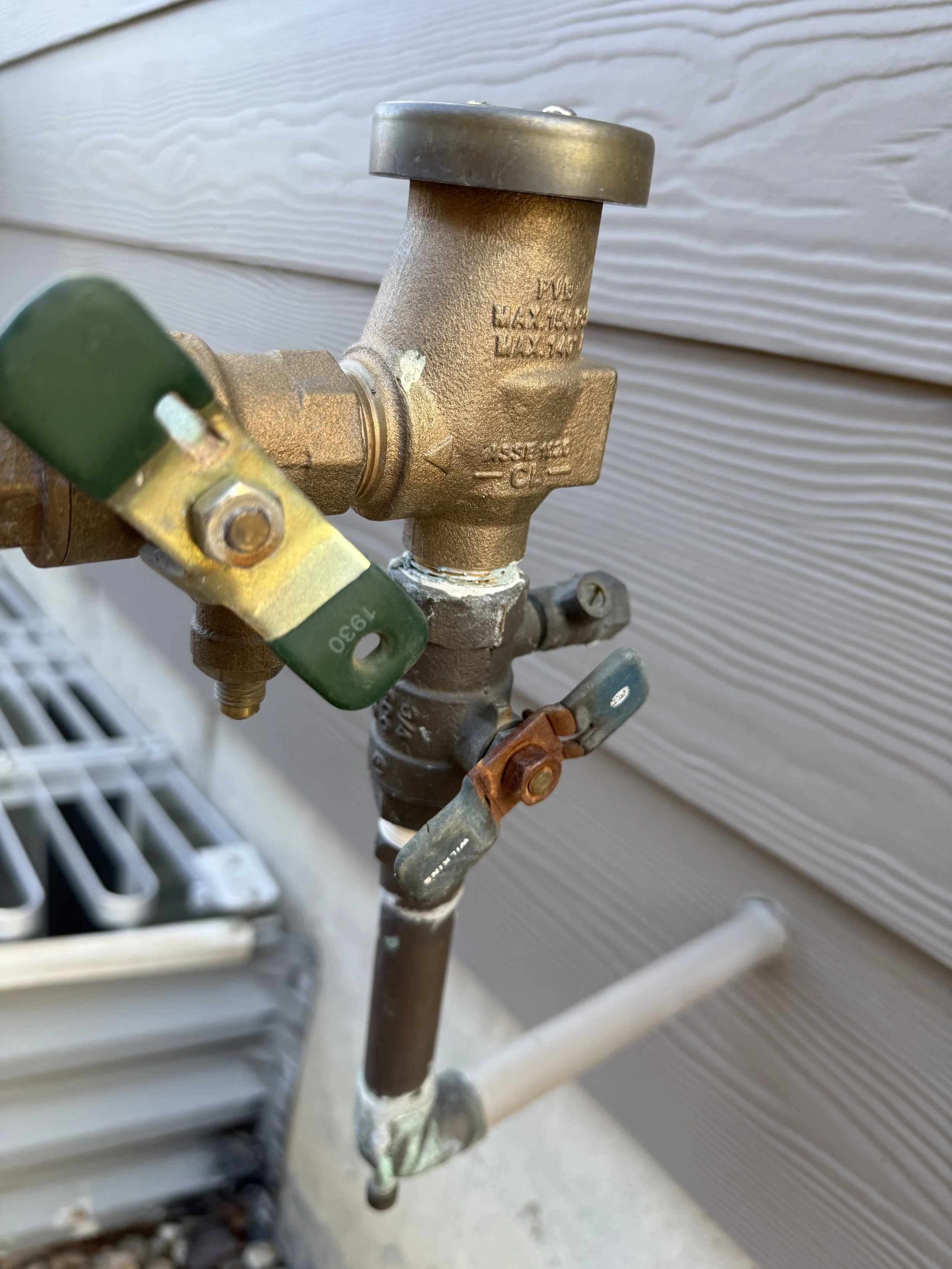Freeze Prevention
Winter is coming! Or depending on when you are looking at this, it may already be here. Here are some tips to keep your home safe from that Colorado weather.
Leave your heat ON!
Whether you are out of town or trying to save some money, make sure your thermostats are turned to the heat position and left at least 55 degrees Fahrenheit or higher. Any plumbing in outside walls or areas of low heat (garages, crawlspaces) can be more susceptible to freezing. Leaving heat on especially in these already colder areas can save you a lot of money by preventing damage from frozen and broken pipes. Additionally, setting up space heaters and opening cabinet doors to allow the heat from the house to get to these colder areas can help prevent freezes as well.
NOTE: If using heaters, make sure you take proper precautions to avoid a chance of a fire or electrical fire.
Make sure batteries are replaced in your thermostats and that your furnace or heating system is operating properly before leaving town.
Shut your water OFF!
If you are out of town, it is a great idea to turn your water off and open fixtures to drain down the water in pipes.
NOTE: This does not replace leaving your heat on. Having the water shut off can often be a good failsafe. If something did freeze and break it prevents additional water damage if your main water shut-off is off.
Leaving a faucet running at a slight drip may prolong the time it takes for water pipes to freeze and is a good technique if you are home.
Disconnect those hoses!
Weather in Colorado can change quickly. You may have had the windows open, watering the garden on a beautiful day and the next morning there is frost on the ground. Even on those “frost-proof” hose bibbs (outdoor water faucets/taps), in small letters it says “Disconnect hoses during freezing weather”). Older homes may not have these “frost-proof” hose bibbs and need to be shut off and drained inside each winter/during cold weather.
Regardless, get in the habit of disconnecting hoses and hose splitters and you will greatly improve the chances of unwanted split hose-bibbs.
Hose Bibb split from freezing
Winterize your irrigation!
Prior to freezing weather, your pressure vacuum breaker should be shut off, drained, and all valves turned to 45 degrees. Additionally, sprinkler systems should be blown out to prevent freeze damage to sprinkler system components and the pressure vacuum breaker.
In the case of above ground irrigation systems fed through a hose bibb, disconnect the hose and or splitters from hose bibb and move any timers inside to prevent freeze damage. The sprinkler piping can also then be blown out to prevent damage to irrigation components.
A good rule of thumb is when you start to see pumpkins in the field or grocery stores, you should be on alert for freezing weather. Irrigation systems can be up and running again after Mother’s Day. However, there are always exceptions to this! Years ago there was still freezing weather in June and every once in a while there will be a freeze before October.
Notice how all valves (and test-ports) have been turned to 45 degrees to allow PVB to drain and prevent freezing.
Phone a friend!
Family, friends, and neighbors are all good resources to check in on your place if you are out of town, typically asking for very little in return, or you can do the same for them. It is great to have someone check things over for you while you are out of town or if you are older and need help disconnecting hoses or shutting the water off.
The last defense!
If you are unable to do any of this on your own or disaster does strike, give us a call and we can find and fix and leaks or burst pipes for you. During cold weather we typically will disconnect hoses we see for you or try and remind you to take your irrigation system offline if we happen to be doing other plumbing or heating work for you and see things that could potentially freeze. It may seem counter-productive to prevent work for ourselves - but our existing customers are part of our family. If we can help to prevent a bigger issue down the road for our customers, we are happy to do it.
Please note: We do not blow out sprinkler systems but ask your friends, neighbors, and people on Nextdoor or Facebook groups to see who they use to do this.


